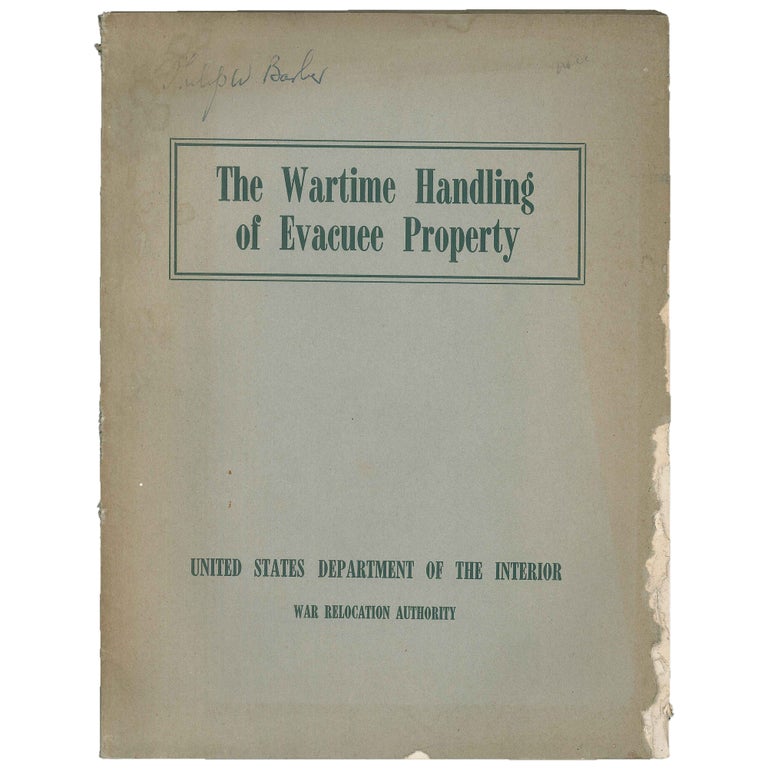
"Some lost everything ... many lost most of what they had"
The Wartime Handling of Evacuee Property
Notes: One of the most disturbing reports on the forced internment of people of Japanese ancestry during the Second World War: the financially disastrous handling of the interned people's property by the federal government.
In just a few months at the start of the war, more than 100,000 people were forced to leave their homes and their farms. They were not allowed to bring much more than they could carry to the internment camps, and what to do with their property was a serious problem. The Army was put in charge until August 1942, when the War Relocation Authority (WRA) took over property management (see page 4). By then, "some [Japanese Americans] lost everything they had; many lost most of what they had" (p. 3).
This report describes how internees were encouraged to find private storage for their property or to sell what they owned in the few weeks before relocation began, with terrible results. "Time and experience have demonstrated that padlocks and bolts on isolated farm buildings and deserted churches or stores afforded little protection to absentee owners against the lawless. Prejudice against the evacuated people ran high ...and this prejudice was reflected in the indifference of many law enforcement agencies toward the depredation of evacuee property and in their professed inability to find or identify vandals, arsonists, and thieves."
Prisoners who relied on the federal government did little better. The Federal Reserve Bank of San Francisco was put in charge of personal property; some of which it stored and some of which it bought outright. For example, the Fed bought 1469 cars from internees and turned around and sold them to the Army (p. 30). The Farm Security Administration (FSA) issued $3.5 million in loans to White farmers to take over and manage Japanese farms. The Japanese farms typically grew specialty crops and were extremely well run (the average value of a farm in 1940 was $38/acre; the average value of a Japanese American farm was $280/acre; see page 37). The new White operators took the money but generally did a poor job running the farms and so, incredibly, the FSA foreclosed on most of the loans and seized the Japanese American owner's property to pay for it. The White operators just walked away (see pp. 48 ff).
iv, 113 pages.
Edition + Condition: First edition (first printing). A very good copy in wrappers, with moderate abrading to the outer edge of the front cover and pages. With the ownership signature of Philip W. Baker, who worked at the Heart Mountain relocation camp and, in 1943, chaired the Relocation Committee for the WRA, which sought to find work and housing for internees outside of the camps. (See memo from D. S. Myer, "The reluctance of center residents to accept offers...", May 15, 1943).
Publication: Washington DC: Government Printing Office, 1946.
Item No: #307832
Sold
